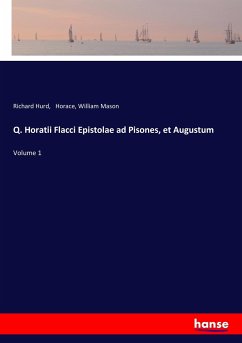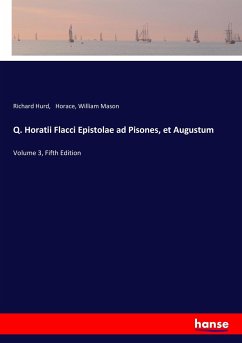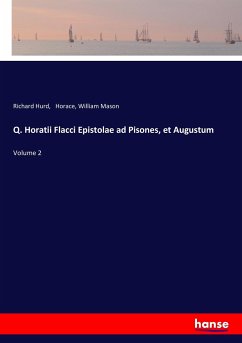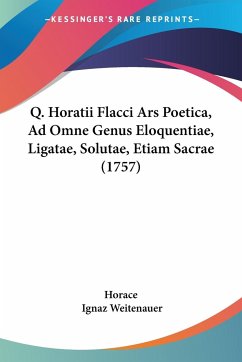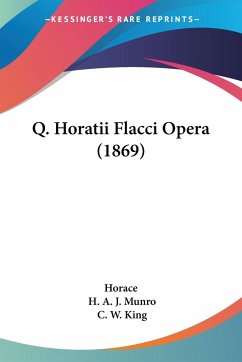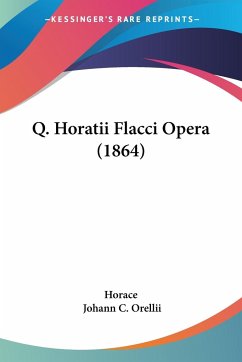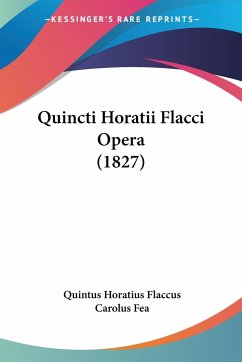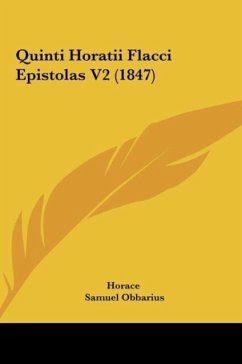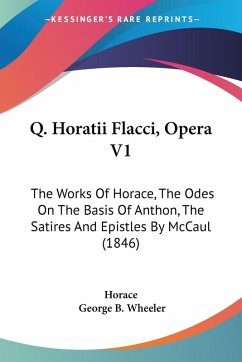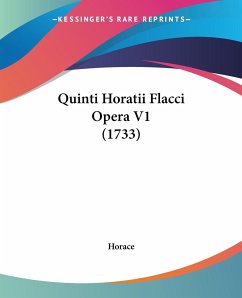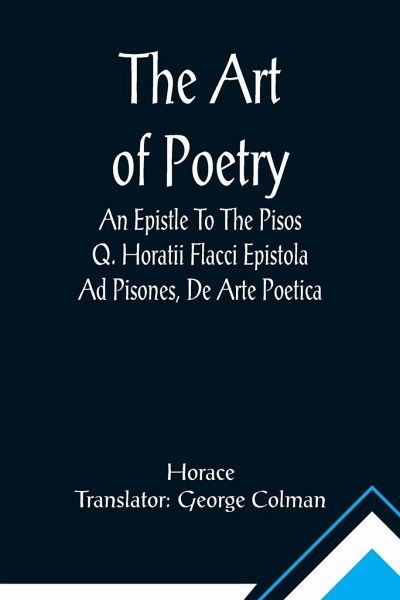
The Art Of Poetry An Epistle To The Pisos Q. Horatii Flacci Epistola Ad Pisones, De Arte Poetica.
Versandkostenfrei!
Versandfertig in 1-2 Wochen
18,99 €
inkl. MwSt.

PAYBACK Punkte
9 °P sammeln!
The Art Of Poetry An Epistle To The Pisos Q. Horatii Flacci Epistola Ad Pisones, De Arte Poetica. "", has been considered a very important part of the human history, but is currently not available in printed formats. Hence so that this work is never forgotten we have made efforts in its preservation by republishing this book in a modern format so that it is never forgotten and always remembered by the present and future generations. These books are not made of scanned copies of their original work and hence the text is clear and readable. This whole book has been reformatted, retyped and desig...
The Art Of Poetry An Epistle To The Pisos Q. Horatii Flacci Epistola Ad Pisones, De Arte Poetica. "", has been considered a very important part of the human history, but is currently not available in printed formats. Hence so that this work is never forgotten we have made efforts in its preservation by republishing this book in a modern format so that it is never forgotten and always remembered by the present and future generations. These books are not made of scanned copies of their original work and hence the text is clear and readable. This whole book has been reformatted, retyped and designed.



